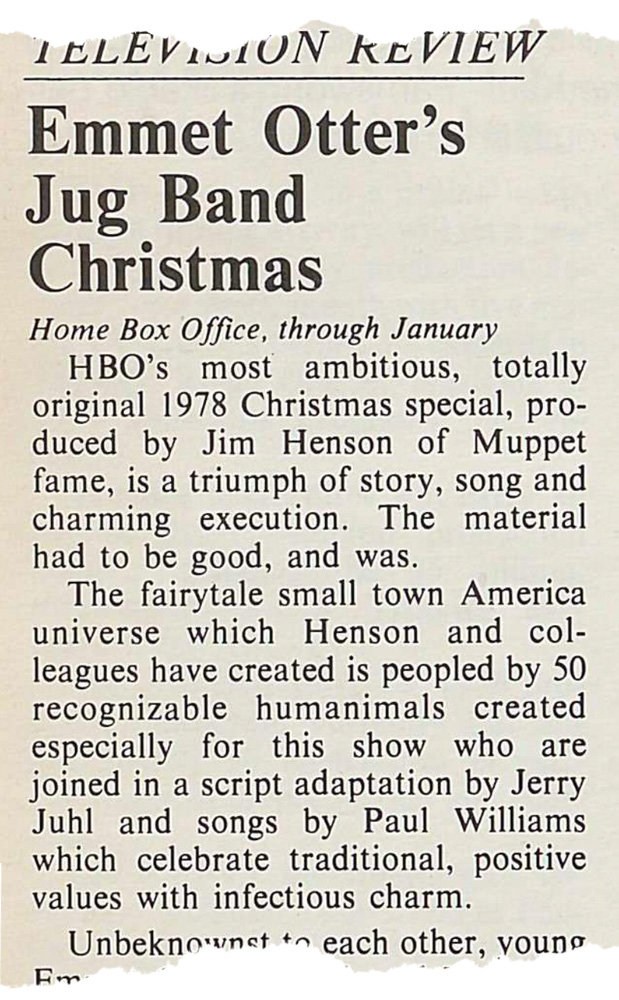
THR called the special “a triumph of story, song and charming execution.”

Jim Henson’s Emmet Otter’s Jug-Band Christmas (1977) may not be as widely known as Dr. Seuss’ How the Grinch Stole Christmas (1966) or Rankin/Bass’ Rudolph the Red-Nosed Reindeer (1964). But it is no less enchanting or enduring than those Christmas TV specials.
Based on the 1971 children’s book by Russell Hoban, it was produced by The Jim Henson Co. and premiered in Canada on the CBC on Dec. 4, 1977, then in the U.S. on HBO one year later. Emmet was technically ambitious, employing new Muppets wizardry that bridged the gap between The Muppet Show, which debuted in 1976, and The Muppet Movie (1979) — including elaborately rigged sets (that had floors) and radio-controlled puppets. The plot, bookended by appearances by Kermit the Frog, follows Emmet and his widowed Ma, residents of Frogtown Hollow, who do odd jobs for residents, some of whom cheat them out of payment.
News of a talent contest with a $50 grand prize leads both of them to enter in hopes of winning money for Christmas presents. But, riffing on O. Henry’s The Gift of the Magi, there are unintended consequences: Ma sells Emmet’s tools to buy dress fabric, while he turns her wash bucket into a standing bass. To compose songs for the special, Henson approached Paul Williams, the prolific songwriter and actor whom he’d vibed with during a taping of The Muppet Show in ’76.
“I walked onto that soundstage in London and it was like, ‘Oh my God — I found my tribe,’ ” recalls Williams, 82, of his first encounter with Henson and other collaborators including Frank Oz and Dave Goelz. With Otter, “he was auditioning me for the score of The Muppet Movie,” Williams says. “I loved the story, and I used my own band. We recorded the tracks at Sigma Sound [Studios] in Philadelphia.”
The wistful and melodically sophisticated tunes — like “Ain’t No Hole in the Washtub” and “When the River Meets the Sea” — would anticipate the Williams classics to come (co-written with songwriting partner Kenneth Ascher) in Muppet Movie compositions like “Movin’ Right Along” and “The Rainbow Connection,” which was supposed to do for Kermit what “When You Wish Upon a Star” did for Jiminy Cricket. “He just knew he’d get the best out of us,” says Williams of Henson. “It was a rare, rare opportunity to work with him.”

THR called the special “a triumph of story, song and charming execution.”
This story first appeared in the Dec. 16 issue of The Hollywood Reporter magazine. Click here to subscribe.